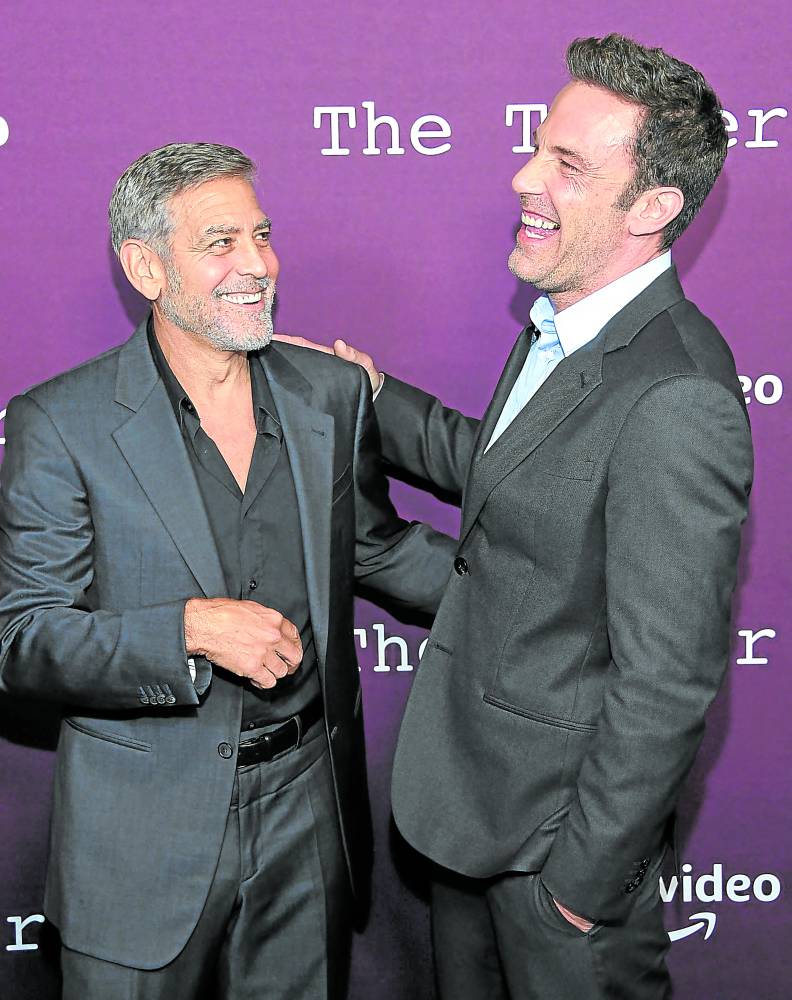LOS ANGELES—Hollywood superstar Ben Affleck never feels like he’s getting any older.
“I look in the mirror and I keep on thinking there’s going to be somebody who’s 30 years old there,” he told Agence France-Presse (AFP). “And you know what? There never is.”
It has been more than two decades since Affleck shot to fame with “Good Will Hunting,” in which veteran comedian Robin Williams played the mentor to Matt Damon’s young prodigy.
Affleck costarred in the film and wrote the screenplay with his childhood friend Damon. The pair won an Oscar.
“I’m now close to or older than Robin (Williams) was when he played that part, which is shocking,” Affleck, now 49, told AFP.
But there are benefits these days to playing characters who have “been down the road of life,” such as the streetwise uncle he portrays in “The Tender Bar,” hitting US theaters on Friday.
“They don’t necessarily tend to be the protagonist, and that is also often a good thing,” said Affleck.
Heroes “basically have to hew to a certain set of virtues for the audience to identify with them, which inherently uncomplicates them in a way that makes it a little harder to play in a realistic way,” he explained. “The more flawed people are, in a way, I find them more interesting.”
Of course, it has only been four years since Affleck played the biggest hero of all, Batman, in “Justice League”—a stint as the Caped Crusader that was not exactly embraced by fans.
In that time, he has also endured another bout of his battle with alcoholism, and the end of his marriage to actress Jennifer Garner, which—like most of Affleck’s life—was closely scrutinized by the tabloid press.
But since then, Affleck has experienced a career renaissance of sorts thanks to more nuanced roles, such as an alcoholic basketball coach grieving the loss of his young son in last year’s “The Way Back.”
And his personal life seems to be on track, as he has rekindled his romance with Jennifer Lopez, 17 years after they initially split.
Good acting challenge
This year, he has taken two supporting roles—in “The Tender Bar,” and as a medieval aristocrat with a fondness for wine-soaked orgies in Ridley Scott’s “The Last Duel.”
“I don’t think you could center a film around my character in ‘The Last Duel’ because he is just so odious,” Affleck said. “But nonetheless, it is a really good acting challenge to try to find a character like that, and bring humanity to it.”
In “The Tender Bar,” which streams on Amazon Prime from Jan. 7, Affleck’s bartender steps in to help raise his fiercely intelligent nephew after the boy is abandoned by his famous radio DJ dad.
Self-educated Uncle Charlie imparts worldly and proudly working-class values to young “JR,” from seeing through the snobbery of what George Orwell called the “lower upper middle class,” to respecting women and—again—the dangers of alcohol.
In a recent interview, director George Clooney described his pride in seeing Affleck “getting his teeth into a really good part, because it doesn’t happen often.”
While the film itself has had mixed reviews, Affleck’s performance has been widely praised, earning a Golden Globe nomination this week.
But those things are “not important to me in a way it used to be,” said Affleck, who won his second Oscar as the producer of the best picture-winning “Argo,” which he directed and starred in.
There is a tendency in Hollywood “to be sort of compulsively chasing the dragon, the next job, without regard to anything else.”
But there is “no permanency to it, there’s no tenure, there’s no seniority—the phone can stop ringing,” he said.
While the explosion of technology and social media has created a “multiple cacophony” with “so many voices,” Affleck said he has learned to turn inward, to create his own “criterion of success.”
Part of that is doing work that “comes from a personal place” and using life experience—positive or negative—to “actually make you a more interesting performer and a director.
“Once I found the ability to do that with myself, I finally got better, and then I needed less of the other, outside thing.
“Some people just fall into craving that and needing that, and it leaves them, I think, empty.”—AFP
